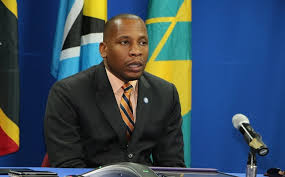Representatives of the rum industry meeting in Jamaica recently have endorsed a call to action by Guyana’s President David Granger, for the region to use its diplomatic strength to help resolve the danger posed to the survival of the industry through the tax rebates passed on to rum producers in Puerto Rico and the United States Virgin Islands (USVI).
The US government makes annual payments to the two territories out of federal excise taxes. So, when rum is produced in either the USVI or Puerto Rico and then sold in the US, the federal excise tax on that rum is returned to its place of production.
According to President Granger, these cover-over subsidies pose an immediate threat to the long term viability of the rum industry, a sector of tremendous social and economic importance to Caribbean economies.
He said Caribbean countries stand to lose US$700 million per annum in export earnings and taxes, with up to 15,000 jobs being affected unless the situation is addressed. In the case of Guyana, he said, it was in the national interest to ensure survival and sustainability of the industry noting that the industry must be protected and preserved in the face of this peril.
Granger was speaking at the launch of the Demerara Distillers 50th Anniversary Edition Rum in Georgetown.
Speaking after the meeting, Chairman of the West Indies Rum and Spirits Producers’ Association (WIRSPA), Frank Ward, said producers “were very encouraged by the President’s statement”.
“The group is extremely concerned about the situation in the US market where some of our producers have already experienced significant losses,” he said.
“We believe this is the most significant threat ever faced by our industry and one most likely to impact on profitability and our ability to earn foreign exchange and maintain employment. Not only are we seeing the effects in the US market, but in other markets as well as the product moves around, which means that our producers will also face new disadvantages in these markets.”
Following discussions among producers in Jamaica, he said, WIRSPA hoped that the CARICOM Council for Trade and Economic Development (COTED) would address the matter again during their next meeting later in the year. He said WIRSPA stood ready to apprise them of the latest developments in the markets and to seek their continuing support.

